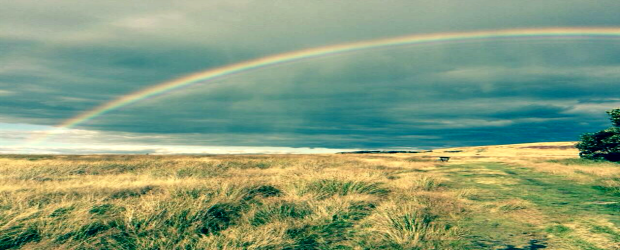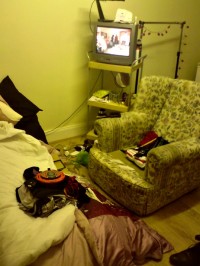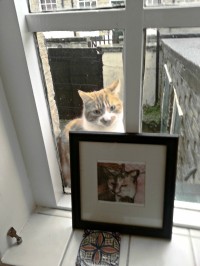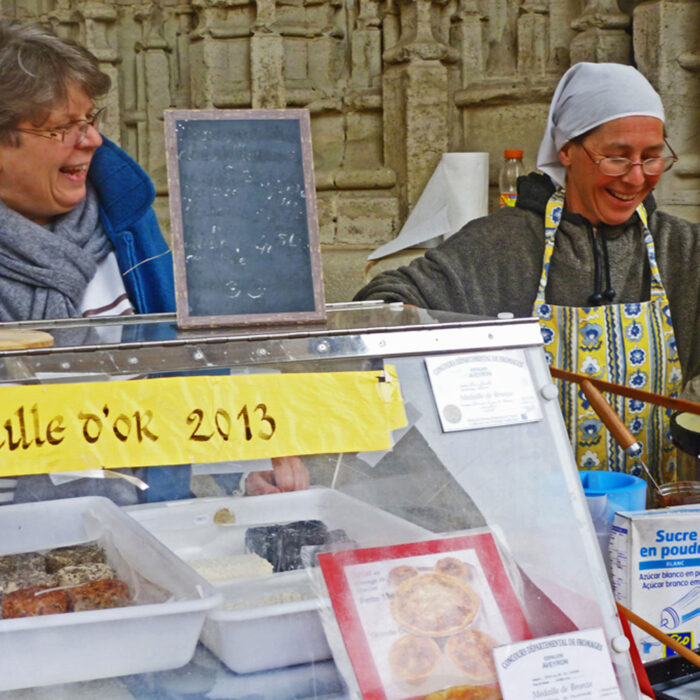You have no items in your cart. Want to get some nice things?
Go shopping

I pinged off the text to my sister.
‘I’m moving to Fanny Street,’ it said.
‘You’re not coming out are you?’
Was the reply. I’d been expecting this.
‘No. I’m actually moving to Fanny Street. Previous tenant, a Mrs. Dix!’
This was not a euphemism either. She was really called Mrs. Dix, the previous tenant. The estate agent had told me so (and we’d all had a good chuckle about it, afterwards).
I’d kept my demeanour breezy when the agent had asked me why I was moving:
‘I like it up here. I’ve been thinking about it for a while…and I’ve got friends here (two, precisely).’
I’d been anticipating, what? At the very least further questioning. None was forthcoming; so I don’t know why I felt I had to add,
‘And I want a better quality of life…’
Forgive me – but platitudes were all I had.
The truth was I didn’t know why I was moving North. Perhaps because things weren’t going very well I felt a grand, flagellating gesture was in order, the grand, flagellating gesture being ‘moving to Yorkshire’.

I would never admit this, though – cold, hard cash touted as the principle ratio. London is eye-streamingly expensive, no one can argue with that: a place where, for ruminates like me, the housing ladder never materialised, only a long string of boa-landlords, slowly digesting the collective will-to-live through crushing monthly rent extractions, and broken Wi-Fi. And although there are many advantages to studio living – being able to stretch out your arm and make a cup of tea in the morning without having to get out of bed for one – squirreling yourself and your whittled-down belongings into one room is not much fun after thirty (four).
But it was after encountering my downstairs neighbour for the first time, an ash blonde of luckless ilk with whom I’d had a doorstep bitch about the local drunks and their habit of making merry with our wheelie bins every night that I decided enough really was enough. I was tired of the dilapidated mansion that accommodated us and a mysterious number of others. Tired of its worn-wefted carpets, it’s fossilized air-fresheners, its post piled up from long-vamoosed lodgers. I feared that if I stayed under its and London’s eaves for much longer that I’d become, not a Muswell Sally or Finsbury Park Flo – yesterday’s scandal and corroded-toe pigeons floating round the lyrics of my life – but nothing; that I would remain exactly the same, not a lick different: a fate, I believed, that could be dodged by moving Up North.
I’d stayed with my two friends, while I hit the streets, looking for digs. Common wisdom dictates that if you are going to relocate to the middle of nowhere, it’s better to go choose somewhere you know at least one other person, to somewhere you will be a complete stranger – even though I know common wisdom to be an ass, and suspect knowing no one is healthier than knowing just two.
The girls had been thrilled when they heard about my plans, in spite of the fact I was out to steal everything about their life and identity except the gay bit. Nina sports sanguinello lips and stylish sandals, is a black-belt in Tai-Kwando and detests ‘regional pride’ of any kind. Natalie is a gold-star Yorkshire lass who dabbles in the tarot and suits canary yellow. They go for holidays in Ibiza and Barbados, have a cat and a coffee machine, and make pancakes on a regular basis.
I discovered there was a plethora of accommodation available in their village, accommodation that was affordable and spacious. Saltaire is a brass-rubbing of a village, smudged out in yellow and black from the hard-plate of social history. It’s founding father was a Victorian cloth-baron: a Sir with an ombrophilius beard condensed from the very climate that made the north so perfect for textile production. He’d built it for his workers, adjacent to his imposing mill, naming each road after a loved one – Ada, Helen, Constance, Victoria, Amelia immortalized in Yorkstone. Fanny was his second daughter, a child with a life cut short (she perished at nineteen of tubercular phthisis). Her body rests in the family mausoleum, and I vowed to go and visit her, when I finally moved into her namesake, and light a candle, even though the Salts were Wesleyan.
I’d gone back to Nina and Nat’s after signing off on Fanny, where, sunk in leather, listening to the tinnitus hiss of my own deep conscious and the deep purr of a thick-thatched, stocky-ankled tabby, I revelled in the cliché that could be: Big town girl moves to small town, has a rocky start when she demands a chai-latte at the local one-pump petrol station, but is thawed by the salt of the earth natives who take her into their bosom, meeting in her first week a lad with big hands after she welches on a hill-start and back-ends into the dry stone wall he is constructing…

I’d sipped my tea and succumbed further into leather. Beryl was now sitting at a picture window, next to an old-fashioned phone. I jumped up, hooking my fingers into its dial to drag out a number, before furling it inside a long spiraling cord, waiting for my mum to answer.
‘I’m moving to Fanny Street,’ I said, after some preliminaries.
‘What?’
‘Fanny Street?’
‘Sorry, what?’
‘Fanny Street,’ I shouted, causing Beryl to scarper.
Back in London, the city and its inhabitants did their best to romance me:
‘But why Yorkshire? I’m sure there are perfectly good Fanny Streets in Bath,’ wailed one disappointed friend who takes not-particularly restorative trips to that spa town every other weekend so her partner to see his child from a previous relationship. Since returning I too had begun to question my logic. I contemplated pulling out of the whole deal, telling everyone it was just one of my hideous mistakes. Who was I trying to kid, anyway? I’d moved dozens of times in my adult life: fresh starts that had turned stale when exposed to the oxidising air of the present. Why would this be any different?
A month later and I packed up my car and hit the M1. It would take two trips, to get all my junk up (it’s surprising how much stuff you can fit into one cubit of flat). I’d had to park half on, half off the pavement when I got there, because Fanny is so narrow.
Stepping into my new home for the first time, I breathed in the smell of newness. Two up, two down, with a small stone yard out back containing dead plants, an old outdoor loo, and a pole for a washing line. I ran upstairs (upstairs!) to look out the window. I could just see, over the rooftops, the pickelhaube-inspired cupola of the Methodist church glinting in the sun. Silence reigned supreme, and I didn’t once stop to think how much I’d sacrificed, for this quiet, this space.
I thought instead about all the weekends I’d have, roaming the dales even though, in truth, the local landscape didn’t inspire me. It seemed to be an upholstered world of stuffy browns and greens, the landscape equivalent of flocked wallpaper. Where were the modernist monoblocs, the lugubrious tunnels, and skyscraper of my dreams? The hills and the mills and the pebble-dashed clock tower in Shipley just didn’t cut it.
Still, I relished the fact that it was a few degrees cooler than London, feeling smug at the thought of the hoards packed into the sweltering underground, glad that I had escaped that rancorous bowl of smog. And the people were so much nicer here, if a little blunt.
‘I call them Yorktians,’
A South African from Keithley told me one day on the train into Leeds. I laughed, I knew what she meant. I did feel like I’d landed on a different planet. I’d almost got run out of the local pub for daring to preposition Ilkley’s two famous rocks, calling them The Cow and The Calf in a moment of Southern gaucheness.
‘It’s Cow ‘n’ Caaaaaaaaalf.’
A glamorous woman had remonstrated, while everyone around me cackled.
I’d have to learn to speak Yorktian. Would I start calling people love at the end of every sentence? Would I start calling baps breadcakes? And, god forbid, would I start talking to folk on trains?
No, but six months on and I’m still here. Some of the cliché did come true: I did meet a lad with big hands. He was from Hull; but I met him online, not backing into a wall. We’re still good friends. I named the cat I fostered after him, on account of them both being ginger. He turns up in my stone yard every so often with dirty paws and I let him in, before kicking him out again, usually in the rain. At Christmas my window display of ‘Partridges in a Pear Tree’ was on the local news; and it’s great to have two friends, that I see often, rather than the many I saw rarely.
Now, when I go back to London, I feel displaced. I’m dazzled by the parades of bright buildings, the cafes, the galleries where everyone looks so shiny, so quirky – like characters from a Dr Seuss. One trip I go to meet my sister for lunch near St Paul’s and I walk past a man in a pin-stipe suit having his brogues polished to a high city-shine and think, ‘You’d never see that in Leeds.’
Sometimes, I do lie awake, listening to church bells knelling through squally rain, wondering if it hasn’t in fact been that horrible mistake I feared. Have I pissed on my chips? I think(as they say in Hull).I start to panic, wondering how I would get my shiny white elephant of a wardrobe out of my bedroom if I did decide to move back, realising it would be impossible and therefore I’d be trapped up here forever… Aye, and my neighbors don’t seem any less dispossessed than the luckless blonde, one answering the door to me in his underpants and a fug of stale smoke when I went to retrieve a parcel. And I’m beginning to suspect that everyone is from down South, anyway.
Then, a quilt of hills. Mud gobbling my boots. I’m headed up – up to the strawberry-blond moor, clambering over a dry stone wall to avoid the worst of the mud, wet wind licking and slapping my face.
I trudge past a tree. Its bare branches are stickled with birds. The field to my left puffed with sheep: one makes a startling sound from behind a wall, causing my heart to pin-ball. A caravan park, some sodden fern, a dog, a river, a road.
At the top, the moor opens out into sheets of blue and purple and grey. I walk freely now across a scorched, Martian landscape: a stark contrast to the swamp below.
There is no one here but me.
The moor is cratered with large grassy pits and small puddles. I head towards a stone seat overlooking the vista, so I can watch the sky, and wait, for what? A spaceship to come and take me home, perhaps. Then I realize, with glee, that I’m already there.

About n/a n/a
Sno Flo illustrates and writes and lives in West Yorkshire. She has a BA in History of Art and Archaeology, an MA in Archaeological Illustration, and a Graduate Diploma in Law. She likes to produce works of creative non-fiction, using her own life as inspiration.




